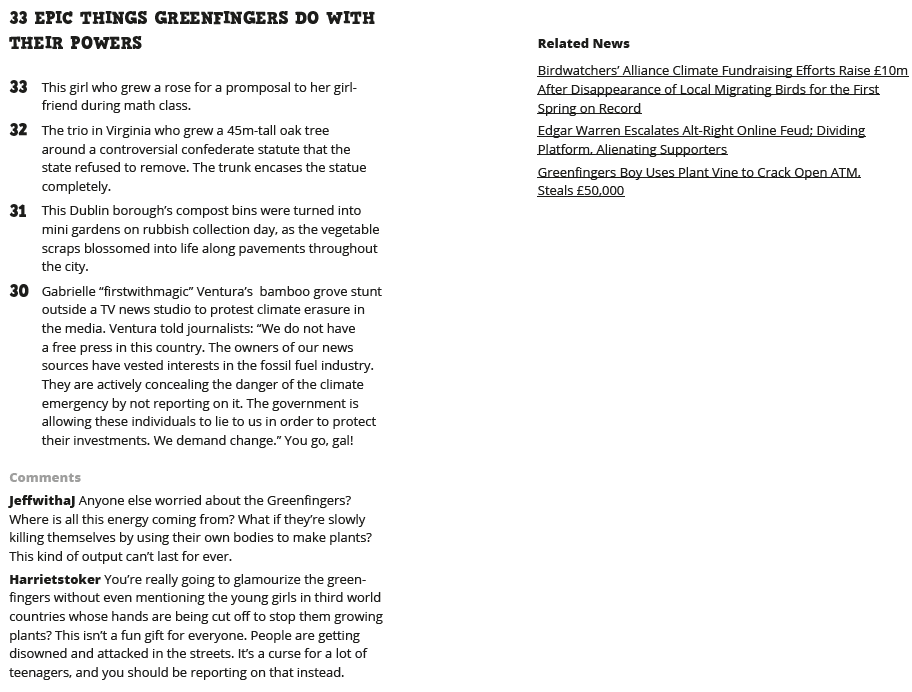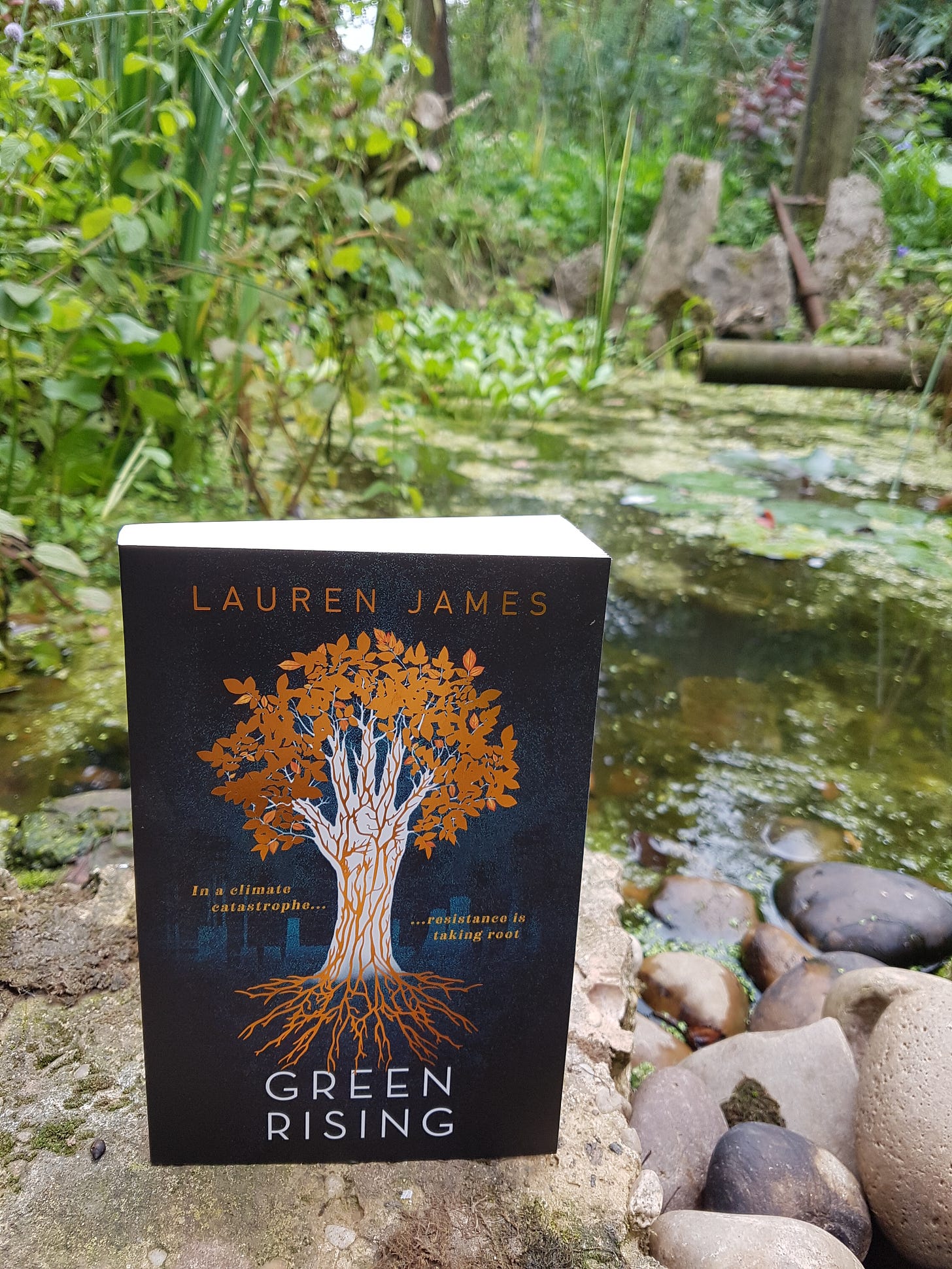Laura Lam, author of sci-fi Goldilocks, interviewed me about my new climate thriller Green Rising, out now with Walker Books.
Laura: I zipped through Lauren James’ Green Rising when I was offered it for a blurb. It’s a perfect call to arms for teens (and adults) for climate change, while also being a rollicking good read! After I finished, I interviewed her for my YouTube channel, C.Y.O.Topia, which I do with my friend Dr. Sinead Collins, along with marine biologist Dr. Johanna Vad. This has been linked on this newsletter before, but thought it’d be a great excuse to link it again if you missed it last time. We delve more into the science side of things.
I’m excited I can now ask some more questions about Green Rising I didn’t have a chance to ask in the interview or else it’d be too long.
What were the different challenges and opportunities you faced while writing Hester, Theo, and Gabrielle?
I really wanted to capture a mix of responses to the climate crisis, but without having any characters be totally uneducated about the topic – I feel like that’s unrealistic in this time, when we’re all very aware of the future we’re facing. Hester starts out the novel as someone who is against climate action, but she considers herself very educated and engaged on the topic and can debate very well on it. She’s been raised by an oil tycoon, so she knows all of the economical and political background of the climate issue.
Meanwhile, Theo is a fisherman’s son, and he is aware of the need for climate action but isn’t very educated about the topic. He just knows that action needs to be taken, even though he doesn’t know what or how it would be possible.
Gabrielle is a climate activist, and she knows what needs to be done, and specifically is willing to break the law to do it. She sees it as an ethical responsibility.
Their views all change over the course of the book, as the three of them start being able to grow plants magically, and use that power to tackle the climate. It was difficult to construct the character arcs for them that felt realistic and built into their cultural upbringing. I wanted it feel genuine to the experience of becoming more involved in climate issues.
If you could grow plants from your hands, what kind of plant would you want it to be?
Since researching rewilding for the book, I’ve become so aware of wasted land spaces, particularly in cities. I wish I could seed-bomb them all with wildflowers! It would be great to do that magically.
I always find it weird when you write things in near-future SF (like my book Goldilocks, set in a future in environmental collapse) and then see a version of it come true. What are some developments in climate change news since you wrote the book have really struck you?
Oh, it’s been so depressing. There are lots of news articles in the book which include headlines for climate articles. I read lots of non-fiction about the future, and a lot of these events were inspired by predictions of the future. I was trying to pitch things happening a few decades from now, but several of them happened during the writing process itself. In particular, I remember reading about a spate of mystery elephant deaths in Botswana, and adding it into my draft as being a result of climate change. A few months later I checked the news and found out that there it actually was due to algae blooms in their water sources from heat waves.

Did you have to kill any darlings you wish could have made it into the book, i.e. some of the research that just couldn’t fit into the story?
Oh, gosh. So much. It’s such a huge topic, effecting so much politically and economically. I really wanted to dive more into how fossil fuel investments effect the US political system, but it was too far away from the main plot. I think I cut 50,000 words from the first draft to the final version.
I also really wanted to dive more into how we could use plants to deal with plastics in landfills, but it felt too small an issue when there are so many bigger, greater threats!
What’s the main thing you hope teens take away from Green Rising?
As individuals, we can’t do anything. But as a collective we have the power to make change. Make sure you are adding your name to that collective, so the people doing the active work have enough clout to get noticed. It takes around 3.5% of the population actively participating in protests to ensure serious political change. That’s such a small amount. We can do this.
Some important things you can personally do, right now:
-check your bank/savings/pension scheme isn’t investing your money in fossil fuel companies
-change your energy supply to a green energy tariff
-find a climate action group in your profession & sign up for their newsletter
Good luck!
You can find out more about Green Rising here.

It seems good work. Thank you 😊
LikeLike